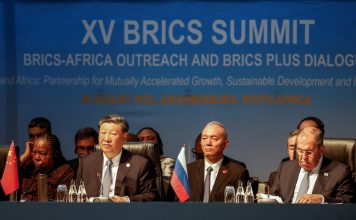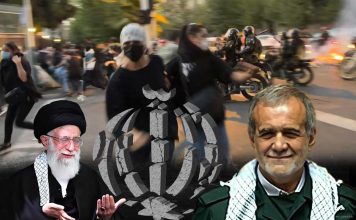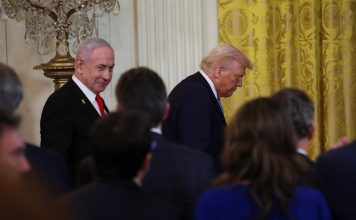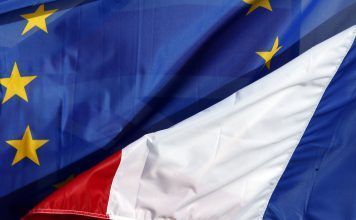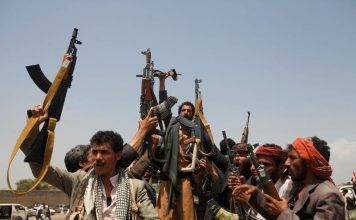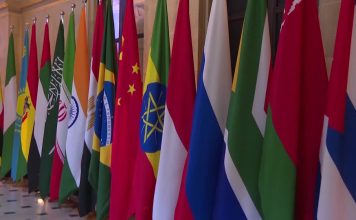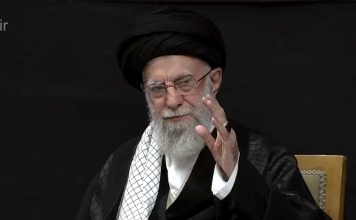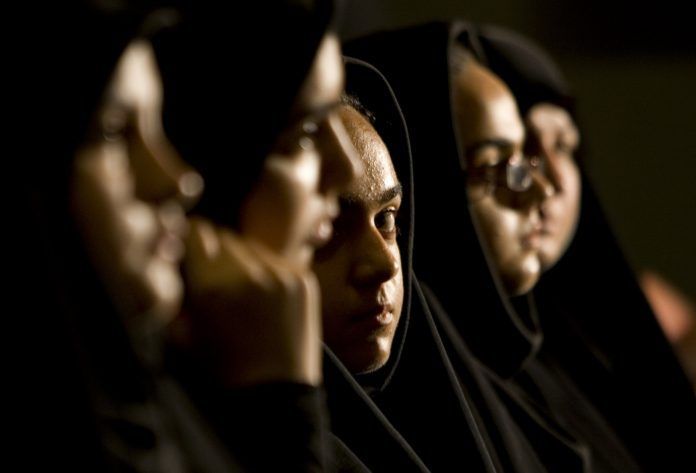
By Kayhan Life Staff
Girls and boys enrolled in schools in Iran should work from different textbooks, Education Minister Reza Morad Sahraei has announced. He made the announcement during the closing ceremony of the National Behin Dokht Festival earlier this month.
The Islamic Republic has a program under way to control teachers and students, and alter the material contained in school textbooks. This has been a priority of the Ministry of Education and Training since last year. Former Education and Training Minister Yousef Nouri has revealed that the Supreme Leader Ali Khamenei has issued orders to change the content of 200 textbooks.
Another major initiative is under way to hire theology students and members of the Basiji (the voluntary paramilitary forces) for education and training purposes as part of the “fundamental transformation of education and training” program.
The Minister of Education has also announced that 20,000 school principals across the country will be replaced at the start of the new academic year, and that “fundamental changes” to increase the influence of Islam in schools are being planned for around 5,000 schools throughout the country.
[aesop_image img=”https://kayhanlife.com/wp-content/uploads/2023/02/2023-02-11T000000Z_518729959_MT1NURPHO000HXXKKI_RTRMADP_3_SOCIAL-ISSUE-IRAN.jpg” panorama=”off” credit=”An Iranian schoolgirl is flashing a Victory sign as she holds a model of the Iranian-made Zolfaghar missile while standing in front of a giant portrait of Ali Khamenei, during a rally to mark the 44th anniversary of the Victory of Iran’s 1979 Islamic Revolution, on February 11, 2023. REUTERS./” align=”center” lightbox=”on” captionsrc=”custom” captionposition=”left” revealfx=”off” overlay_revealfx=”off”]
These fundamental changes in the education system of Iran are founded on the “noble principles of the Islamic system” and ensure that by 2025, Iran will attain the status of a developed nation with a leading position in the region in the fields of economy, science, and technology, while also maintaining its Islamic revolutionary identity, serving as a source of inspiration for the Muslim world and establishing constructive and influential relationships at an international level.
In his recent remarks about textbooks, Education Minister Sahraei said that there were three perspectives on girls and women.
The first perspective marginalizes women and girls, and doesn’t assign them any important roles.
The second views women as tools, and makes a woman’s gender a dominant element in her identity, resulting in the degradation of the woman. This perspective is promoted by feminists, in a distortion of what was initially a response to the significant oppression that men inflicted on women.
The third perspective places great importance on family and sees women not as marginalized individuals or as tools, but as integral members of society, with family life as the most crucial element in the development of society. This is the perspective favored by the Islamic Republic.
Earlier this year, in May, Sahraei declared that the progress of the curriculum required ongoing evaluation and modification. He also emphasized the importance of connecting schools and mosques.
Despite the global trend towards irreligiosity, he highlighted that some countries had recently returned to religion. He expressed concerns over the increase in irreligiosity in Iran and stated that the collaboration between the mosque and school was crucial in producing individuals who could effectively serve the Islamic Revolution.
The Ministry of Education issued a statement on May 4th regarding sixteen programs focused on “veiling and chastity,” emphasizing the need for a secure and appropriate learning environment. Students were encouraged to increase their knowledge, personal and social experiences, and receive specialized training from the superior Islamic School system in order to serve Islamic society as honorable individuals in the future. This statement warned that non-compliance with the mandatory dress code could result in educational services being denied.
At a gathering of “preachers of education” on Aug. 28, 2022, the former Minister of Education revealed that he had signed a memorandum of understanding with the “Society of Preachers.” Earlier that month, on August 2, he appointed Hamed Alamati as the Chief Executive Officer of the Center for the Intellectual Development of the Child and the Adolescent (CIDCA), the person recognized for conducting religious ceremonies.
On August 11th, the leader of the Center for the Intellectual Development of the Child and the Adolescent (CIDCA) drew attention after stating that an “Islamic Disneyland” would be constructed in the following two years. It is not clear what type of narratives and activities the “Islamic Disneyland” will employ to engage and amuse youngsters and families.
The head of the employee selection department of the Ministry of Education, Hossein Davood Al-Mousavi, announced on August 31st that all personnel in government and non-government schools must go through a selection process that took into account their ethical, religious, and political beliefs after an academic evaluation because of the high sensitivity of the teaching profession.
However, the Islamic Association of Teachers of Tehran voiced their concerns on September 23rd at the start of the new academic year in Iran, expressing worries over the purge and expulsion of teachers. The organization argued that the Ministry of Education’s increasingly ideological approach to curriculum development and the purification process in the Ministry of Education was making the selection process for teachers more difficult, while the hiring of teachers exempted from the national exam under Article 28 and clerics in schools was increasing.
The purification policy has led to the exclusion of Persian literary texts from the rich resources of Iranian literature and the removal of most classical world literary texts. Social science textbooks now focus more on propaganda against secularism and Western culture, and religious books lack the ability to address the questions and issues of the new generation.

